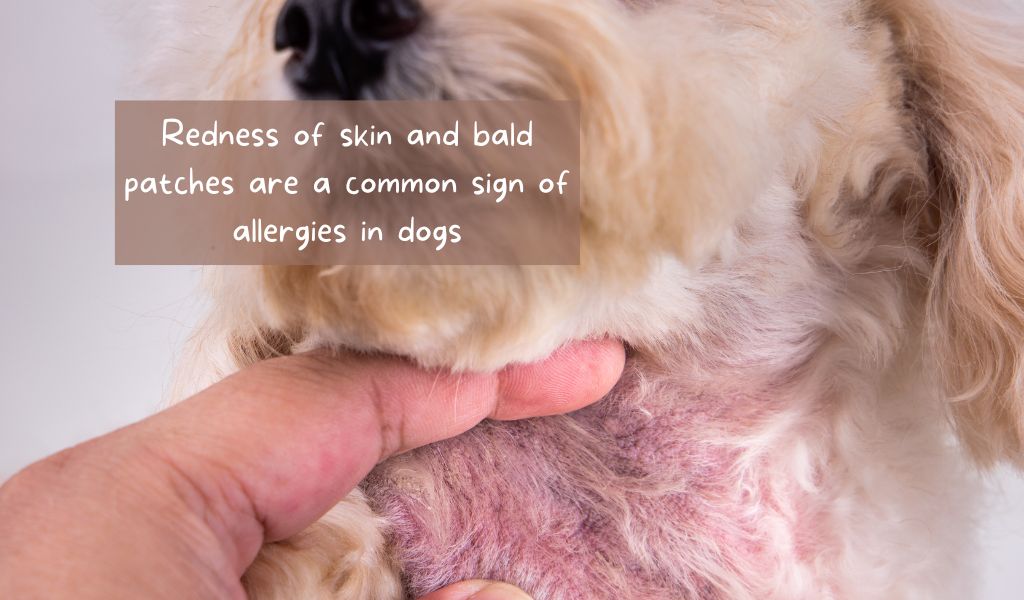Are you concerned that your dog may be allergic to cats?
Pet allergies can cause discomfort for dogs, and it’s important to know the signs and symptoms so you can take action if necessary.
In this blog post, we’ll explore what causes a pet allergy to cats, how to diagnose if your dog is allergic, treatment options available, and ways you can help manage the allergy symptoms at home.
We’ll also discuss why veterinary care is essential when dealing with pet allergies.
Dogs can be allergic to cats. Allergies in dogs are caused by their body’s response to a foreign material and the release of histamine which can cause the skin to become itchy. Dogs with less fur on their body such as paws, eyes, mouth and abdomen may be more prone to an allergic reaction due to the increased exposure to allergens.
What are the signs of a dog having an allergy?
Allergies in dogs can range in severity and cause them a great amount of discomfort, so it is important to recognize the signs to get your pup the help they need.
Common symptoms of allergies may include excessive scratching or licking of the skin, paw-licking, hair loss, inflamed or scabbed ears, and vomiting or diarrhea.
If you observe any of these signs, it’s best to consult with a vet as soon as possible to determine if your pet has an allergy and what steps should be taken for treatment.
Determining the cause of the allergy must happen first before moving forward with treatments such as antihistamines, topical ointments or steroids depending on the severity and type.
Making sure your pup receives appropriate care is essential for their health and wellbeing.
Causes and symptoms of allergies in dogs
Allergies in dogs are experienced in similar ways that humans experience them, by developing an overreaction to certain substances or irritants.
Common causes of canine allergies include flea bites, food ingredients, pollen, air pollutants such as cigarette smoke and dust mites.
Symptoms vary from one dog to another but generally include itching, inflammation of skin and mucus membranes, watery eyes and other respiratory symptoms.
Your vet will be able to provide a treatment plan for your dog if he has an allergy.

How to diagnose if your dog is allergic to cats
Diagnosing a pet allergy can be a lengthy process, as the veterinarian must first isolate what is causing the allergic reaction.
This usually involves discussing potential allergens with the owner and then running different tests to check for reactions or antibodies found in the blood.
Once these tests are conducted, the vet can then determine if the allergy is caused by cats and come up with a treatment plan.
Treatment options for an allergic reaction in dogs to cats
Depending on the severity of the allergy, topical lotions and creams, antihistamines, or steroids may be prescribed.
Additionally, there are some lifestyle changes that you can make in order to help manage allergy symptoms such as keeping your home and outside areas free of cat dander, frequent vacuuming, and bathing your pet regularly with hypoallergenic shampoos.
It is important to note that allergies in dogs can be a lifelong issue that requires ongoing management but, with the help of your vet, you can provide your pup with the best care possible so they can live a happy and healthy life.
How to manage your dog’s allergy symptoms at home
– Keep your home clean and free of cat dander.
– Vacuum and dust regularly and open windows to allow air to circulate.
– Bathe your pet regularly.
– Remove other allergens from the environment – cigarette smoke and dust can aggravate allergies.
– Provide your pet with a diet that is free of things such as dairy and grains.
– Always get and act on the advice of your vet.
The importance of seeking veterinary care for pets with allergies
Just as is the case with people, allergies can have a serious effect on your dog’s quality of life and, if they are left unchecked then they can certainly worsen.
Ultimately, veterinary care is needed to properly diagnose and treat the allergy.
Depending on the severity of the allergy, your vet may prescribe medication or suggest lifestyle changes that can help manage the symptoms.
By being vigilant and seeking veterinary care for your pup’s allergy, you can ensure that your four-legged family member is living a healthy and happy life.
Popular Gentle Shampoo for Dogs
Final Words
It is important to remember that allergies in dogs can be caused by exposure to cats, and that the signs and symptoms should be taken seriously.
With the help of your veterinarian, you can ensure that your pet receives proper diagnosis and treatment that will keep their allergy under control so they can live a happy and comfortable life.







